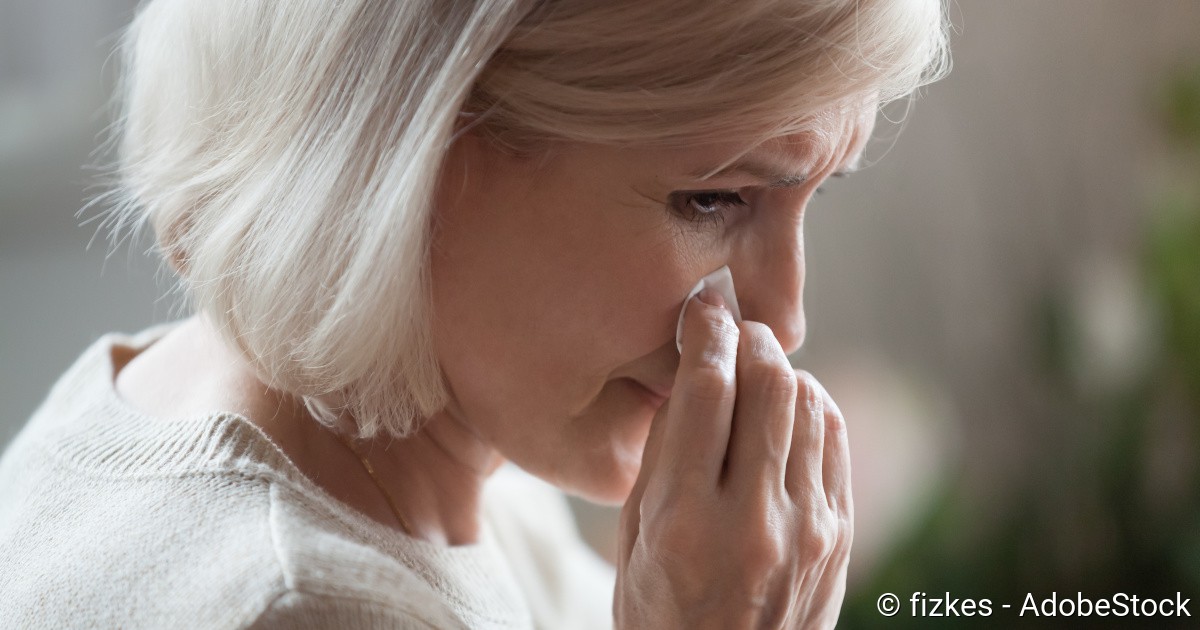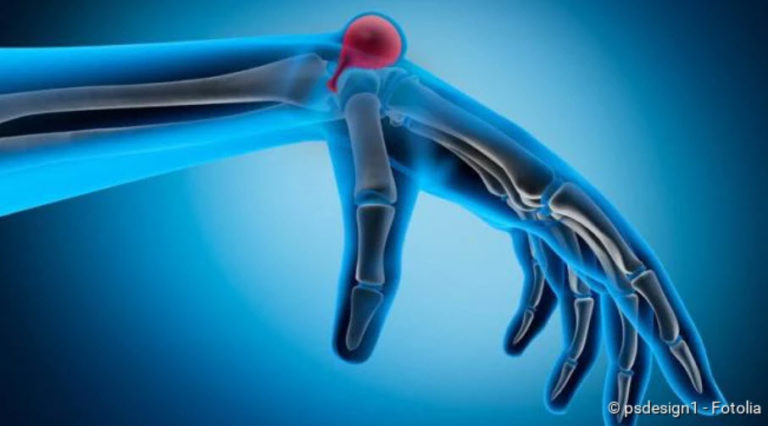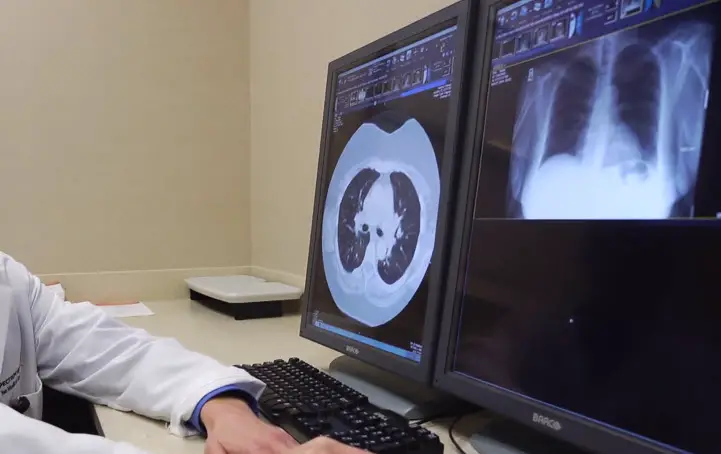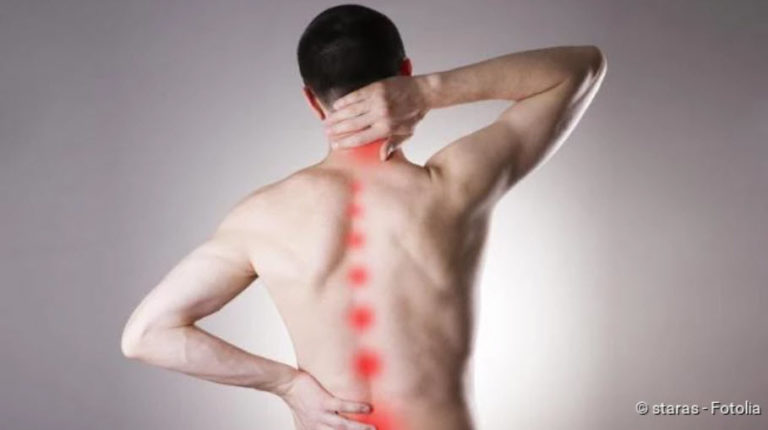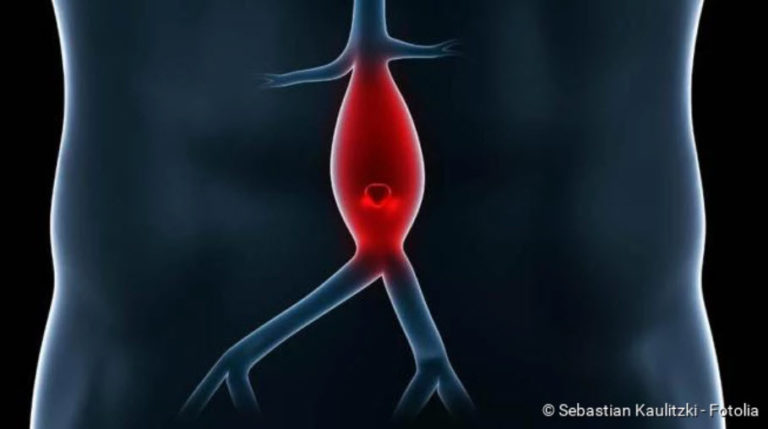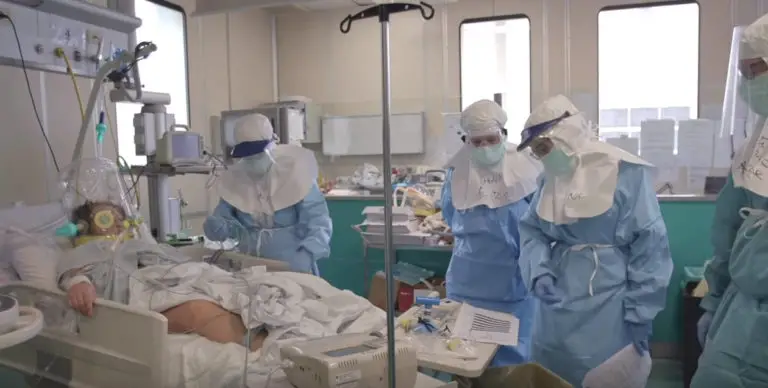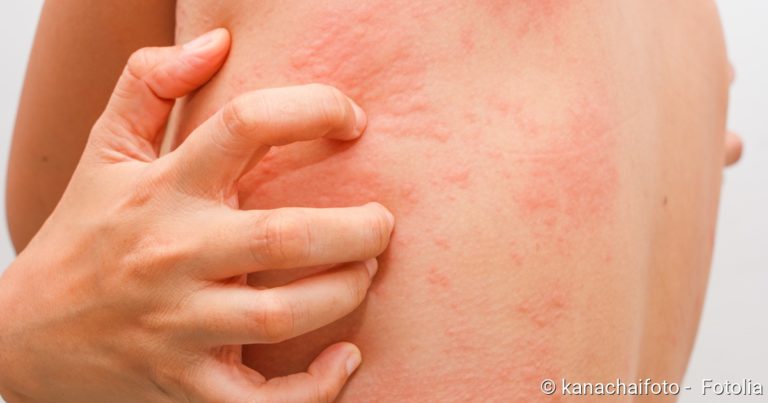Depression: symptoms, treatment, causes
Depression: Short overview
- Main symptoms: deep depression, loss of interest, lack of drive
- Side symptoms: including insomnia, self-doubt, feelings of guilt, concentration disorders
- Therapy: various forms of psychotherapy and medication (antidepressants)
- Causes: partial genetic predisposition, psychological injuries, disturbed messenger metabolism in the brain, stress
- Suicide risk: 10 to 15 percent of patients take their own lives. A therapy protects!
Depression – Symptoms
Depression is a serious mental illness that should definitely be treated professionally. Unlike the sadness and listlessness that are part of life, depression does not go away by itself after a while, nor does it improve by distraction or encouragement.
Three main symptoms of depression
How do you recognize depression? The following three main symptoms are typical:
Depressed mood: Those affected suffer greatly from a deep depression. The depressive mood is almost uninterrupted, very pronounced and lasts at least two weeks.
Inner emptiness and loss of interests: A characteristic sign of depression is also that the person affected feels neither joy nor other feelings. Inside he feels empty and emotionally dead. The interest in social contacts, work and hobbies disappears. Encouragement attempts by fellow human beings have no effect. Even positive experiences do not improve the mood. Everything seems hopeless to them, so that some lose the will to live.
Lack of drive and fatigue: Depressed people find it difficult or even impossible to cope with everyday tasks. You constantly feel mentally and physically exhausted. Even getting up in the morning becomes a feat of strength, so that some people never leave bed because of their depression. Tiredness becomes the normal state.
Side symptoms of depression
The following side symptoms are also typical of depression:
- strong self-doubt
- Feelings of guilt and self-reproach
- Concentration and attention disorders
- extreme need for sleep or sleep disorders
- strong restlessness and inner excitement
- Loss of sexual interest
Depression symptoms in men
Depression is diagnosed less frequently in men. In part, this is because they often express themselves differently than women with depression. Aggression, severe irritability, low impulse control and low stress tolerance are common side effects. You take more risks than usual, for example driving a car much too fast. They often consume more alcohol than usual or smoke more. They reproach their fellow men and are dissatisfied with themselves and the world. One reason could be that they perceive the depressive feelings as weak and unmanly and therefore live them out differently.
Attention, suicide risk!
The negative thoughts can become so strong in severe depression that suicidal thoughts arise. Some depressive people are at high risk of suicide. About ten to fifteen percent of patients with depression die from suicide.
Get help! If you are thinking of suicide yourself or think that a relative might be suicidal, seek help without hesitation. The seemingly hopeless situation is a sign of depression that can be overcome with the right support.
Self test for depression
Do you have the impression that you might be suffering from depression? Online self-tests, such as the renowned Goldberg test developed by the psychiatrist Ivan K. Goldberg, provide important information. Important: Such a self-test cannot replace the diagnosis by a doctor or therapist. In any case, seek help if the test gives this recommendation.
Physical symptoms of depression
Depression is often accompanied by physical complaints that have no recognisable organic cause. Such symptoms are called somatic. Typical physical symptoms are, for example:
- Cardiovascular complaints
- Headaches and backaches
- Stomach and intestinal problems,
- Insomnia
- Loss of appetite
- rarely also stronger appetite
- Morning low
- sexual listlessness
Somatisation disorder
Sometimes the physical complaints are so much in the foreground that the depression is not immediately recognized. Doctors then speak of a somatic syndrome. The physical symptoms occur in phases and subside with the treatment of depression.
If the doctor does not find an organic cause for the complaints, he can reveal the hidden depression as the actual cause by asking for it. If this is the case, he will diagnose a so-called somatisation disorder. This does not mean that the patients only imagine the symptoms, but only that the depression manifests itself in physical form.
Delusions and hallucinations in depression
A severe depressive episode is sometimes accompanied by delusions and hallucinations. The patients then suffer from paranoia or obsessive thoughts, for example. Such delusional depressions are particularly difficult to treat. In addition to antidepressants, antipsychotic drugs are also used for this purpose.
Grief or depression?
Symptoms of depression can be similar to those of deep sadness. But there are crucial differences. This includes the fact that, in contrast to depression in a bereavement, the depressed mood does not always remain the same. Despite their loss, most mourners are able to laugh and feel joy in between. People with depression cannot do that.
Moreover, the mood of mourners usually improves over time. Mourning can return abruptly through the thought of loss. But little by little a grieving person will enjoy more and more beautiful experiences again. The support of friends and family can also be a comfort to him. In some cases, however, a mourning reaction can turn into depression.
Depression – Treatment
Every third person develops a depression in the course of their life, according to statistics. A speedy treatment is then important, because those affected suffer greatly from their condition. In addition, the therapy becomes more difficult and the risk of the disease becoming chronic increases.
Depending on the severity of the illness, depression is usually treated with psychotherapy, antidepressant medication or a combination of both. The combination therapy is particularly indicated for chronic and recurrent depression. Experts also recommend a combination of both treatment approaches for severe depression.
Psychotherapy for depression
For people with depression there are many psychotherapeutic offers. At present, however, health insurance funds only cover the costs of cognitive-behavioural therapy and so-called psychodynamic psychotherapy.
Psychotherapy
Psychotherapy requires patience and commitment from the patient over months. However, those who get involved can often overcome their depression in the long term and improve their overall mental stability.
Cognitive behavioral therapy
In Cognitive Behavioral Therapy, the patient, with the support of the therapist, seeks ways to find ways out of the depression. To this end, negative thoughts, patterns and beliefs are, among other things, uncovered, checked for their correctness and, if necessary, replaced by new, more positive ways of thinking.
Psychodynamic Psychotherapy
Psychodynamic psychotherapies are based on the idea that depression is often triggered by experiences of loss and hurt that could not be processed properly. These are to be worked up in the course of the therapy. Psychodynamic psychotherapy includes classical psychoanalysis as well as psychotherapy based on depth psychology.
Other forms of psychotherapy for depression
Interpersonal therapy (IPT) is a short-term therapy method that was developed especially for the treatment of depressive disorders. It combines therapeutic concepts from behavioral therapy and psychodynamic therapy. An important therapeutic goal is to learn skills and strategies for dealing with conflicts that contribute to the development or maintenance of depression.
However, the costs of ITP are not yet covered by the funds. This also applies to various other forms of therapy such as systemic therapy, family therapy, gestalt therapy or art therapy. However, they are often offered as supportive therapies in the context of inpatient treatment.
This also applies to complementary therapeutic measures such as psychoeducation, occupational therapy, groups of relatives, learning relaxation techniques and body- and movement-related therapies.
Depression: therapy with medication
Antidepressants can successfully treat the symptoms of depression. However, the effect often only sets in after weeks. The drugs are usually prescribed for severe depression or when the patient is reluctant to undergo psychotherapy.
However, there is no guarantee that the drugs will have the desired effect. Every person reacts differently to the active ingredients: some benefit greatly from them, others have little effect or the patients feel the side effects above all.
If the medication is discontinued, there is a risk of relapse – especially if this occurs abruptly. Therefore, do not stop taking antidepressants on your own, but discuss the procedure with your doctor!
Selective serotonin reuptake inhibitors (SSRI)
Currently, selective serotonin reuptake inhibitors (SSRIs) or serotonin-noradrenaline reuptake inhibitors (SNRIs) are mainly used to treat depression. They increase the level of the “happiness hormone” serotonin in the brain and have a mood-lifting effect. The drugs have significantly fewer side effects than older drugs. Typical side effects are nausea, anxiety and sexual dysfunction.
SSRI effect on depression: SSRIs block the reuptake of serotonin into the nerve cell. This increases the content of the messenger substance in the brain fluid. The free serotonin can thus bind more to suitable receptors and have a positive influence on mood.
Tricyclic antidepressants
Tricyclic antidepressants are among the oldest drugs used to treat depression. However, they have strong side effects such as dry mouth, trembling, tiredness and constipation. Especially in older people, heart rhythm disturbances and an increased heart rate can also occur. Tricyclic antidepressants are therefore almost only prescribed when newer drugs are not effective.
Monoamine oxidase inhibitors
Monoamine oxidase inhibitors (MAO) have also been used for a long time to treat depression. They have similar side effects to tricyclic antidepressants. Special care must be taken with tranylcypromine. This active ingredient requires a strict low tyramine diet. Tyramine is contained in dairy products, wine and sausages, for example. If the patient does not avoid foods rich in tyramine, serious side effects such as high blood pressure can occur.
Other medicines for depression
Although lithium is not a classic antidepressant, it is often used as a mood stabilizer for depression. It also aims to reduce the risk of suicide.
St. John’s wort is a herbal remedy that can help especially with mild to moderate depression. Interactions with other drugs are problematic. For example, St. John’s wort impairs the effect of contraceptive hormone preparations.
Electroconvulsive Therapy
Electroconvulsive therapy can also be used to treat depression in many cases, where medication and psychotherapy fail. In this process, a short “epileptic seizure” is triggered by current pulses under short anaesthesia. This idea may be frightening at first. However, the patient does not actually notice the procedure and the risks are low.
Waking therapy
For awake therapy, patients must stay awake the second half of the night or the whole night. Although this method cannot cure the depression, it can cure the symptoms in the short term. The patients feel good again for the first time in a long time, even if only for a short time. This is not only an enormous relief, it also awakens in them again the hope that they can actually overcome their depression.
Depression – help for self-help
More recent studies have come to the conclusion that offers of help without direct contact with therapists can also be helpful. One possibility are instructions for self-help. Those affected can read much of the information themselves and only occasionally have contact with an expert who can support them. This can, for example, help to bridge the waiting time until therapy.
Internet-based therapies and apps
Another alternative is professional advice via the Internet. The therapy is performed with the help of a special computer program. In the meantime, there are also so-called depression apps and chatbots that make it easier to deal with depression. They are based on elements of Cognitive Behavioral Therapy.
Sport as an antidepressant
Out of the house, out of the depression! For depression, experts also recommend regular physical exercise. This can significantly reduce depressive symptoms – both in the short term and in the long term. In fact, regular exercise can work as well as an antidepressant. Explanations for this are the reduction of stress and possibly a change in messenger substances such as serotonin and noradrenaline.
But the psychological effect of sport could have an even greater impact: The patients come out of the spiral of listlessness and withdrawal. They experience that they themselves can do something for their mental well-being. Self-esteem is strengthened and hopelessness is repressed. Those who do sport in a group also benefit from the sense of community and social contact that is usually less common in depression.
It is well known that regular physical exercise is generally healthy. There is also evidence from studies that sport can support antidepressant treatment. However, it is also very clear that sporting activity is usually not suitable as the sole means of treating depression
Surprisingly, long periods of sleep and bedtime worsen the depression in many depressive patients, as sleep deprivation is a recognized therapeutic method. Often a vicious circle develops: If you are exhausted, you go to bed earlier and stay in bed longer. However, depressive people do not feel rested and fit again afterwards, but the opposite happens – they are even more exhausted.
The most important thing is to get detailed information about the disease. This helps to understand the changed behaviour of the person concerned and avoid misunderstandings. It is also important to know that as a relative you are not to blame for the illness and are not responsible for the cure.
Inpatient or outpatient therapy for depression?
A mild or moderate depressive phase can often be treated by outpatient psychotherapy. An inpatient stay in a clinic is particularly necessary in cases of severe depression. Medication, a wide range of psychotherapeutic therapies and intensive care in the clinic help patients to return to a structured daily routine.
If there is a high risk of suicide, depressive people can also be admitted to a clinic against their will.
Dealing with depressed relatives
Do you have the impression that someone close to you suffers from depression? Then you should encourage him to talk to a doctor about it. If the person concerned lacks the drive to do so, you may be able to take over the organisation and possibly even accompany him or her. It is important to act quickly! Because depression does not usually go away by itself. It is more likely to worsen if left untreated.
But also take care of yourself: Supporting a depressed family member is extremely exhausting. The gloomy mood, listlessness and loss of interest – also towards partner, family and friends – can severely impair one’s own zest for life. Normally a relationship is based on mutual give and take. But now you have to give patience, care and support without getting much in return. And perhaps without the situation improving significantly and quickly.
This is stressful and frustrating. It is therefore quite normal for relatives to feel helpful and cherishing and at the same time feel guilty. Admit these feelings to yourself. Not only your relative is affected by the disease, but also you!
As relatives they should therefore seek help. First, find out about the clinical picture of depression. A deeper understanding of the disease background and mechanisms is very important for the correct handling of the disease. Only then can you understand that it is not possible for a depressed person to pull himself together and that attempts at encouragement cannot help.
What else you can do to help your loved ones and protect yourself from burnout can be read in the text Depression – Relatives.
Depression: causes and risk factors
How depression develops has not yet been fully understood. It is assumed, however, that several factors – internal and external – always interact. These include biological, genetic and psychosocial triggers. The extent of the influence of the various factors varies from case to case.
Genetic influences
Studies on twins and adoption have shown that depression also has a genetic root. The risk of developing depression is higher if other blood relatives are already ill. This is especially true if they became ill at an early age.
If, for example, an identical twin suffers from depression, the other twin also develops depression in about 40 percent of cases. In fraternal twins this happens about half as often, i.e. in 20 percent of cases. To a certain extent depression is therefore hereditary.
Vulnerability – susceptibility to depression
Vulnerability describes how susceptible a person is to a mental disorder.
For people with high vulnerability, even a little stress can cause depression. However, if the vulnerability is low, people can cope well with even very stressful events. Such persons are called resilient, i.e. resistant. It is therefore not only the objective severity of the burden that determines whether a person falls ill with depression.
The experiences that a person has had in his life also have a considerable influence. For example, people who have experienced traumatic experiences such as abuse or neglect in childhood are at particularly high risk of developing depression. However, it is also decisive what skills a person has acquired to cope with stressful situations.
Disturbed messenger metabolism in the brain
Nerve cells in the brain communicate with each other via electrical impulses and messenger substances, so-called neurotransmitters. There is evidence that this so-called brain metabolism is altered during depression.
A disturbed norepinephrine or serotonin level in brain tissue could be partly responsible for depression. If these are not in balance, the exchange between the nerve cells is disturbed. And that in turn influences feelings and thoughts negatively.
The fact that the neurotransmitters in the brain actually play a role in depression is supported by the effect of antidepressant drugs such as serotonin reuptake inhibitors. However, this hypothesis has not yet been able to explain why it usually takes weeks before the drugs take effect.
Misregulated stress hormones
Other explanations attribute the depression to a misregulation of the stress hormones adrenaline, noradrenaline and cortisol. In particular, an elevated level of cortisol has been found in depressed people. This can be the trigger for, but also the consequence of a depression illness.
Stress as a trigger
Indeed, it is known that stress plays a crucial role in the development of depression. Conversely, a depression also causes stress itself. For example, through the loss of quality of life, but also when the job can no longer be performed or tensions with the social environment arise.
Some phases of life are per se associated with increased stress. This includes, for example, puberty or retirement. In such phases the risk of depression increases.
Even drastic life events are stressful. This includes negative experiences such as loss of job, separation or a serious illness. However, positive events also cause stress: even when a promotion, the birth of a child or a wedding is involved, the probability of contracting depression increases.
In fact, people with depression often report difficult events before the onset of the disease. In many cases, however, depression also appears to appear out of nowhere.
Negative thought patterns
It is not always fate or genes: personal attitudes to life also have an influence on the risk of depression. People who think badly of themselves and of the world and who see the future in black are more likely to fall ill. On the other hand, a good self-esteem and optimism protect against depression. Something can be done about that: Negative thought patterns and ideas can be changed positively through appropriate exercises.
Female sex
Women are about twice as likely to suffer from depression as men. One possible explanation is that women are more at risk due to hormonal fluctuations, for example before menstruation.
Strong hormonal changes also cause pregnancy, which in some women leads to pregnancy depression. The so-called postpartum depression or postpartum depression also affects many women.
Low socioeconomic status is also a risk factor for depression – and more women live in poverty than men.
In addition, depression in men is discovered less frequently. Some shy away from showing weakness and seeking help. However, they also have sometimes atypical symptoms such as aggressive and excessive behaviour.
Physical diseases and depression
Some physical illnesses can also promote depression. Especially diseases of the brain and hormonal disorders such as hypothyroidism or hyperthyroidism influence the emotional world. In Cushing’s syndrome, for example, excessive amounts of cortisol are released in the adrenal cortex. The result is often a depressive phase.
Serious and chronic diseases are also a permanent burden on the psyche. For example, people suffering from cancer, severe cardiovascular disease and diabetes often develop depression. It is also possible that the drugs used for treatment or physiological processes linked to the disease increase the risk of depression.
On the other hand, depression can have an unfavourable influence on the course of such diseases or in some cases even promote their development. With such a combination of physical and mental illnesses, it is therefore always necessary to treat the psychological and physical suffering equally.
Depression and somatoform disorders
In addition, depressions favour so-called somatoform disorders, chronic complaints for which no organic cause can be found. These include above all pain, for example in the back, stomach or joints. But digestive disorders, heart problems or breathing problems can also be somatoform.
Additional mental illnesses
People with depression often suffer from other mental disorders. Here too, it is important to recognise both diseases and treat them accordingly. These include
- Anxiety disorders
- Obsessive-compulsive disorders
- Alcoholism
- Personality Disorders
- Eating disorders
Winter depression: lack of light as a trigger
Some people are only depressed during the dark season – but that happens every year. Depression in winter is one of the seasonal affective disorders (SAD). Symptoms such as listlessness, loss of interest and dejection largely correspond to those of classic depression, but are usually milder. Typical for a depression are also a pronounced need for sleep and a ravenous appetite for sweets. This is why people with winter depression usually gain weight during the winter months.
The cause of the disorder is thought to be the lack of daylight, to which some people are particularly sensitive. In darkness, the body releases large amounts of the sleep hormone melatonin. This hormone not only makes you tired, it also depresses your mood.
The most important therapy to prevent and treat winter depression is light therapy. It reduces the depressive phases especially in winter depression. For two weeks, before sunrise and after sunset, the patient sits daily in front of a device that emits strong artificial daylight for 30 to 60 minutes. If this is not enough, additional medication, but also psychotherapy can help.
If you want to learn more about this topic, read the article Winter depression now.
Medicines and drugs
Taking certain medications can also affect mood. These include cardiovascular drugs such as beta blockers, but also cortisone and related substances, hormonal contraceptives and some neurological drugs such as anti-epileptic drugs and Parkinson’s drugs.
Drugs such as alcohol, cannabis and other substances that influence the psyche can also promote the onset of depression.
Who suffers from depression?
People can fall ill with depression at any age. According to the Federal Health Survey, approximately three million people in Germany currently suffer from depression. So depression is very common – and it can affect anyone.
Depression in children and young people
Depression also affects young people: About one to two percent of children of pre-school and primary school age and three to ten percent of adolescents suffer from it. In rare cases even very small children fall ill. In children, however, depression is often not recognized.
How do depressions manifest themselves in children? Symptoms such as sadness and withdrawal are quickly classified in children as hypersensitivity, which disappears on its own. Depression also often manifests itself differently in children than in adults. Some have tantrums, others are extremely affectionate. Smaller children in particular often find it difficult to describe their feelings. They then complain, for example, of stomach aches or headaches, although the soul is actually suffering.
In teenagers, melancholy and moodiness are also considered normal side effects of this phase of development. This may indeed be the case, but it is not uncommon for depression to be the cause. This is because puberty as a time of upheaval with hormonal turbulence and stress makes young people particularly susceptible to depression.
The relapse rate is particularly high among children and adolescents with depression. This is because the mental disorder can permanently change the functions of the brain, which is still in the process of developing. This is why fast and effective therapy is particularly important for young people. Psychotherapists specialising in children and young people can help. In addition to cognitive behavioural therapy, a family therapy that includes the family environment can be useful. For small children there is the offer of play therapy.
If you want to learn more about how depression affects children and young people and how to help them, read the article Depression in children and young people.
Age Depression
For many people, growing old is a process that brings losses above all else: leaving the workforce plunges many people into a void and the feeling of no longer being needed. Your partner or good friends die. Physical performance decreases and diseases occur. All these changes are a burden and cause stress. That is why the risk of depression increases with age. About 15 percent of people over 65 suffer from it. But this is often overlooked: 40 percent of age-related depressions remain undiagnosed.
Social withdrawal, exhaustion and dejection are quickly misinterpreted by them as a result of natural ageing processes. Symptoms such as concentration disorders and forgetfulness are also often hastily classified as incipient senile dementia.
With the help of an appropriate treatment, a lot of joy of life can be regained even in old age. Antidepressants as well as psychotherapy are suitable for the treatment of age-related depression.
If you would like to learn more about how depression affects older people and what can be done about it, read the article Ageing depression.
Depression: examinations and diagnosis
If you are afraid of suffering from depression, you should urgently contact a doctor, psychiatrist or psychotherapist. Depression is a serious illness that should be treated as early as possible. The earlier the therapy begins, the better the chances of recovery.
Studies on depression
As the first point of contact you can consult your family doctor. This person can check the suspicion on the basis of physical examinations and a detailed conversation. The family doctor could ask you the following questions in an initial consultation. They target symptoms typical of depression.
- Has your mood often been depressed or depressed in recent weeks?
- Have you often felt joyless lately?
- Have you often been listless and tired lately?
- Have you had any self-doubt, guilt or negative thoughts lately?
- Do you suffer from insomnia?
- Have you had trouble concentrating lately?
- Has your appetite changed recently?
- How long have these symptoms lasted?
Physical triggers
The diagnosis is more difficult when the main focus is on physical symptoms. Many patients complain of headaches, back or stomach aches as well as cardiovascular problems. Talking about physical symptoms is easier for many people because they are more socially accepted than mental illness. Men in particular often emphasise physical signs more strongly and pay less attention to their psychological symptoms.
Physical examinations
Physical causes of the symptoms can be ruled out on the basis of various examinations. This includes a blood test, possibly also a computer tomography (CT) of the brain. Low blood sugar levels, vitamin B12 deficiency, dementia, hypothyroidism and changes in the brain can also trigger depressive symptoms.
The diagnosis of depression is unlikely if manic phases occur, which are more likely to indicate bipolar disorder. In addition, abuse of psychoactive substances, such as drugs, can also cause symptoms that would otherwise suggest depression.
If the suspicion of depression is confirmed, the doctor will refer the patient to a specialized clinic or an outpatient psychiatrist or psychotherapist.
Depression and other diseases
Depression often occurs in combination with various other mental diseases and disorders. It is important to recognize these in depressed people. Because the therapy can only be successful if the other psychological problems are also treated. Mental disorders associated with depression include
- Anxiety or panic disorders
- Addictions
- Eating disorders
- Personality Disorders
- Dementias
Some physical illnesses are also often accompanied by depression. Physical and psychological stress seem to reinforce each other. These include in particular
- Cardiovascular diseases
- Diabetes
Diagnosis depression
The diagnosis of a (clinical) depression requiring treatment is made after excluding other causes on the basis of the International Classification of Diseases, ICD 10 Depression is certified if the patient shows at least two of the three main symptoms (depressive mood, loss of interest and joy, lack of drive) and one of the secondary symptoms for more than two weeks. Depression is divided into three degrees of severity depending on the number and severity of symptoms: mild, moderate and severe (major depression).
Depression – Definitions and definitions
What is understood by depression has changed fundamentally several times over the course of time. Since outdated notions of depression are also still widely used, this is confusing.
Definition of depression today
Experts today classify a depressive episode according to its severity and course as mild, moderate or severe depression.
One speaks of a depressive episode when two of the three main symptoms (depression, loss of interest and reduced drive) and two of the seven additional symptoms (for example, feelings of guilt, sleep disorders or concentration problems) occur over at least two weeks. In English-speaking countries, the depressive episode is known as “major depression”.
Endogenous and exogenous depression
Just a few years ago, depression was divided into endogenous and exogenous depression depending on the suspected causes. These terms are no longer commonly used in professional circles, but are still widely used today.
An “endogenous depression” was understood to be a depression without any recognisable external trigger or organic cause. This was explained by altered metabolic processes in the brain, for example due to a corresponding genetic predisposition.
If a concrete trigger seemed to be recognizable, one spoke of an “exogenous depression”. The term “reactive depression” or “depressive reaction” was also frequently used. If a psychological burden was assumed to be the cause of reactive depression, this was referred to as “psychogenic depression”.
Depression or maladjustment?
Today we speak of adaptation disorders when current psychological stress triggers depression. This can be the death of a loved one or unemployment.
In such cases, depressive symptoms such as sadness, hopelessness and listlessness are a natural reaction. However, in some people they take over. Frequently, additional disturbances in social behaviour also occur.
The symptoms of an adaptation disorder usually subside after six months at the latest. However, the disorder can also develop into a long-term depression.
Recurrent depressive disorder
In about two thirds of patients, depression occurs repeatedly. Between episodes can be months, but also many years.
If the depressions flare up again and again, it is difficult for the patients to bear it. Your life will be severely restricted. Often they are no longer able to pursue their profession. Their social relationships also suffer from the depressive phases and can break down as a result.
The more often depressive phases occur, the more likely a further relapse becomes. Women are more likely than men to have a recurrence of depression. The risk is also increased for patients who fall ill with depression at a young age or only at an advanced age.
Chronic depression and dysthymia
In some people, depression does not progress in phases, but they suffer from depressive symptoms throughout. However, the complaints are usually less pronounced than in an episodic course. Doctors then refer to this as dysthymia. It is characterized by the fact that those affected suffer from depressive symptoms continuously or regularly over a period of at least two years.
The possible triggers are manifold. However, studies show that patients with chronic depression have had traumatic experiences such as abuse more often than other depression patients.
This form of depression is often not recognized – even the people affected themselves often find their depressed mood normal. This also makes it more difficult for them to recognize that they are actually ill. Nevertheless, even less severe chronic depression significantly impairs the quality of life, performance and social relationships of patients. It should therefore be addressed. Cognitive behavioural therapy can also help here. However, drugs are even more effective in this form of depression.
If you want to learn more about dysthymia, how it affects you and what you can do about it, read the text Dysthymia.
Bipolar disorder
As soon as manic phases appear in addition to the depressive ones, a bipolar disorder is present. This also belongs to the affective disorders, but strictly speaking it is not depression. Those affected then oscillate between two emotional poles: Depression and lack of drive on the one hand and extreme euphoria, overestimation of one’s own abilities and exaggerated actionism on the other. A bipolar disorder is often more difficult to treat than a classic depression.
Agitated depression
An agitated depression manifests itself in an anxious drive. The affected people walk around restlessly and complain of shortness of breath and palpitations. An agitated depression is therefore also called “whining depression”.
While depressives usually have difficulty in getting up to any kind of action, people with agitated depression have a constant need for movement. Their behaviour is hectic and aimless.
Atypical depression
In contrast to the classic form of depression, the mood in atypical depression can be improved by positive events. Other signs are increased appetite and a strong need to sleep during the day. Those affected often act very theatrically and are easily offended.
Atypical depression is not uncommon. About 13 to 36 percent of depressive patients are affected. This depressive disorder occurs predominantly in women.
Depression: Course of the disease and prognosis
The course of depressions varies from individual to individual. However, most people who suffer from depression can be well helped by consistent treatment. This also applies to older people! The therapy makes it possible to break through depressive episodes or let them subside completely. Curing depression is therefore possible!
Untreated, however, the probability is high that a depression will persist for months or years. This is especially true for severe depression. The earlier the treatment is started, the better the prospects.
One third of those affected experience a depressive episode only once in their lives. The chances of this are particularly good if they are adequately treated early on. With each relapse, however, the probability of further depressive phases increases. Chronic depression is particularly difficult to cure. They often become lifelong companions and require constant treatment.
Suicidal risk in depression
About ten to fifteen percent of people with depression take their own lives. This risk is particularly high for patients with chronic or very severe depression.
A co-morbidity, for example with an anxiety disorder, often makes it difficult to treat depression. In patients who also suffer from an anxiety disorder, the disease often develops unfavorably. It is equally unfavourable if depression occurs at a young age and if the patient does not have sufficient social support.
Further information
Book recommendations
- Learning to think positively: How to increase your well-being through positive thoughts Paperback (Markus Pfeil, 2017, CreateSpace Independent Publishing Platform)
Guidelines
- S3 Guideline and National Care Guideline (NVL) “Unipolar Depression” of the German Society for Psychiatry and Psychotherapy, Psychosomatics and Neurology (as of 2015)
